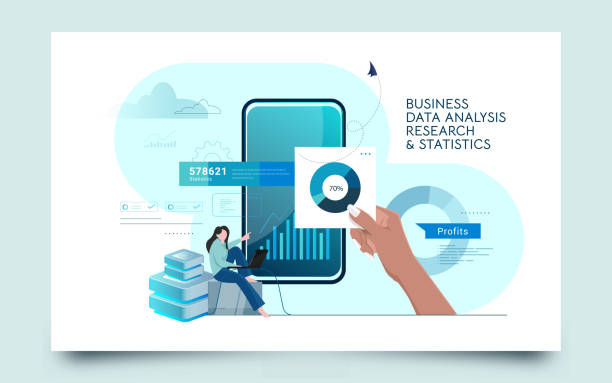From teenagers to seniors Today, everyone shops online. It is easy, fast, and accessible. However, many must be more conscious of online transactions while ensuring their financial data is safe. According to a study by Experian, almost one-in-four digital users in India have been the victim of online fraud.
Online customers often share their personal financial information on various shopping websites, including credit/debit card numbers. While this can make checkout easy, it presents a serious security risk. Customers who shop online are at risk of various risks and frauds like identity theft, the loss of funds, attacks by hackers, frauds using phishing which can steal financial information, and others.
Security when transacting online is a necessity of the day. Here, we will explain the fundamental rules you must adhere to to protect your financial information across various platforms.
Guidelines to keep your financial Data Secure, While Transacting online
Rule No. 1: Look for the HTTPS protocol
Whatever platform or website you choose, make sure that the domain name on your browser starts with ‘https. The ‘https’ refers to an Internet protocol that employs end-to-end encryption. The term “s” here signifies secure. Using only portals and websites that start with https will stop third-party hackers from accessing your financial information.
Rule No#2: Use Only Reputed Shopping Sites/Web Portals
It could be tempting to purchase something from a shady online store to save tens of dollars. However, you could be losing more than you saved.
Check that your online stores are well-known and have an excellent reputation. Ensure the site has adequate security measures to protect your financial information.
If you are shopping from a lesser-known brand/online store/app, check the reviews and popularity of the portal to help you decide whether you should buy or not.
In the end, spend some time reading the data privacy guidelines of the website or app. This can help you know how that platform will handle, store, and use your personal information.
Rule No.3: Do not use your Financial Information on a Public Wi-Fi Network
You are more likely to become a victim of fraud online if you utilize Wi-Fi networks that are not secure. Free Wi-Fi networks are accessible for hackers to penetrate and steal personal information, like credit card numbers, web login information, etc.
Always use your secure home Wi-Fi network or mobile data when entering bank or card information.
This leads us to the next part.
Rule #4: Secure the Wi-Fi network
Utilize all security tools such as passwords, firewalls, and encryption to minimize the risk of malicious hackers attacking your office or home Wi-Fi network. Do not share your Wi-Fi password with anyone. If you must share it with a friend, ensure that you change it following.
Install the most up-to-date anti-virus program on all your devices to guard yourself against malware that monitors and steals personal information. Make sure you update your OS to guard yourself against digital threats.
Rule #5 Be cautious with E-Wallets and other applications which you download
E-wallets are becoming more popular as a practical method of payment. However, before downloading one, ensure you download an app with solid security features. Most e-wallets keep the user’s card/internet bank details. If the app is compromised, so will your account number.
Please read the reviews and ratings of the app prior to installing it on your phone. Make sure you download only apps from reliable sources. When downloading an application for your phone, make sure you download only those apps available on the iTunes App Store (for iOS) and Google Play (for Android). Avoid downloading apps from any other source, as they could steal your financial data and run in the background.
Additionally, passwords safeguard your electronic wallets to ensure that anyone is unable to access them, even if you lose your phone.
Rule No#6: Practise Safe Card Usage
Here are a few security precautions you need to be aware of when using credit or debit cards:
- Keep your card numbers and PINs private.
- When selecting a PIN, look for more intricate combinations. Do not choose easy-to-break ones such as 1234, 1111, etc.
- Change the PIN every few months.
- Remember to note the PIN code in a notebook with the card or anywhere else. Memorize it.
- You can enable two-factor authentication on all your credit cards. This feature means that you must enter your PIN and the OTP sent to your mobile each time you use your card to make an online purchase. While it is tedious, it is a worthwhile investment since it considerably boosts your card’s security.
Rule #7: Practise Safe Internet Banking
The guidelines for the use of cards are applicable to your bank’s online account.
- Do not share login information with anyone. Do not record it in any form. Memorize it. Update the passwords to login/transactions regularly.
- Select the security question that is hard to answer. The responses to these security questions are private.
- Ensure your password is secure and composed of lower and uppercase characters, numbers, and symbols.
- Choose a username that is difficult to determine. There are better choices than using your name or birthdate as login credentials.
- Do not sign into your online banking account via public Wi-Fi.
- Register your mobile number with the bank for instant notifications and updates.
- It is a good idea to review your bank account statement and transaction information at least once daily. If you spot something unusual, you must notify your bank immediately.
- Make sure you quit the mobile banking application after you have used it.
- Secure all mobile wallets and other banking apps using your password. This ensures your security even if you lose your phone.
- If you are connecting to your online banking account via the internet, use the Virtual keyboard to prevent malware that records keyboard inputs.
Rule #8: Beware of Phishing Calls
Phishing is among the most popular kinds of online fraud in India. Scammers contact victims who are not aware, pretending to be credit card companies or banks. They request confidential details such as your debit card’s pin, OTP, internet banking password, etc., under the pretense of proving your identity.
Do not share sensitive financial information with anyone. Be aware that banks and credit card companies will not request sensitive information.
If you are contacted by such calls call, hang up and be sure you report the issue to your bank or credit card company, so they can take the appropriate action and stop the fraudsters.
Rule # 9: Do not store your bank account details or card information on Digital Platforms
At the time of checkout, most eCommerce shops ask customers if they wish to save the details of their credit card to make it easier to checkout later. Although this can be an efficient way to save time, it is also hazardous. If the online store or digital platform becomes compromised, so is the data stored on it. Also, ensure you do not save your card information through third-party platforms.
Rule #10: Enable Remote Wiping of Phone Data
Our smartphones are much more than just a device to receive and make texts and phone calls. They can do much more, from shopping online to paying utility bills. It is similar to losing your money. If you lose your phone, you must ensure that your personal information is with the right people.
Both Android, as well as Apple phones let users erase data remotely. You can enable this feature to secure your financial information even if your phone gets lost or stolen.
EndNote
Prevention is always better than cure.
The dangers associated with online transactions are just as great as the convenience. Follow these rules of thumb to avoid being an innocent victim. Security in the financial realm is a long-lasting virtue. It is essential to practice it regularly. By being alert and making intelligent decisions, you will stay away from fraudsters on the internet and continue enjoying the advantages of online transactions and shopping.




